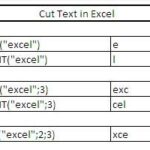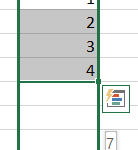How to Use SWITCH Function
In this Excel tutorial, you’ll learn how to effectively use the SWITCH function to simplify your formulas and handle multiple conditions more efficiently.
What is the SWITCH Function?
The SWITCH function in Excel is designed to evaluate an expression against several possible values and return a corresponding result.
It helps in situations where you have multiple conditions, providing a more concise alternative to complex nested IF statements. This function is ideal for simplifying your formulas, making them easier to read and maintain.
The SWITCH function checks an expression against a list of values, returning the result that matches the first value found. It finds the first match and returns it. If none of the specified values match, you can provide a default result as an option.
How to Use the SWITCH Function
Syntax:
SWITCH(expression, value1, result1, [value2, result2], …, [default])
- Expression: The value or expression that you want to evaluate.
- Values and Results: A list of values to compare against the expression, along with the results to return for each matching value.
- Default (optional): A result to return if none of the specified values match the expression.
SWITCH Function vs. IF Function
The SWITCH function is especially useful when dealing with multiple conditions that return different results based on the first match.
In contrast, the IF function requires more complex nesting when handling numerous conditions. The SWITCH function makes your formulas more readable and less prone to errors by reducing unnecessary complexity.
Examples of SWITCH Function Usage
Example 1: Assigning Grades Based on Scores
Imagine you want to assign a grade based on a student’s score. Instead of writing multiple IF statements, you can use the SWITCH function for clarity:
=SWITCH(B2, 90, “A”, 80, “B”, 70, “C”, 60, “D”, “F”)
This formula checks the value in cell B2. If B2 equals 90, it returns “A”; if 80, it returns “B”, and so on. If B2 is less than 60, it returns “F” as the default value.
Example 2: Extracting State Names from Text
You can also use the SWITCH function with other Excel functions. For example, to extract the state name based on the last two characters of a text string, you can write:
=SWITCH(RIGHT(B3, 2), “UT”, “Utah”, “TX”, “Texas”, “OH”, “Ohio”, “?”)
This formula looks at the last two characters in cell B3 using the RIGHT function. If it finds “UT,” it returns “Utah”; for “TX”, it returns “Texas”. If there’s no match, the function returns “?” as the default value.



